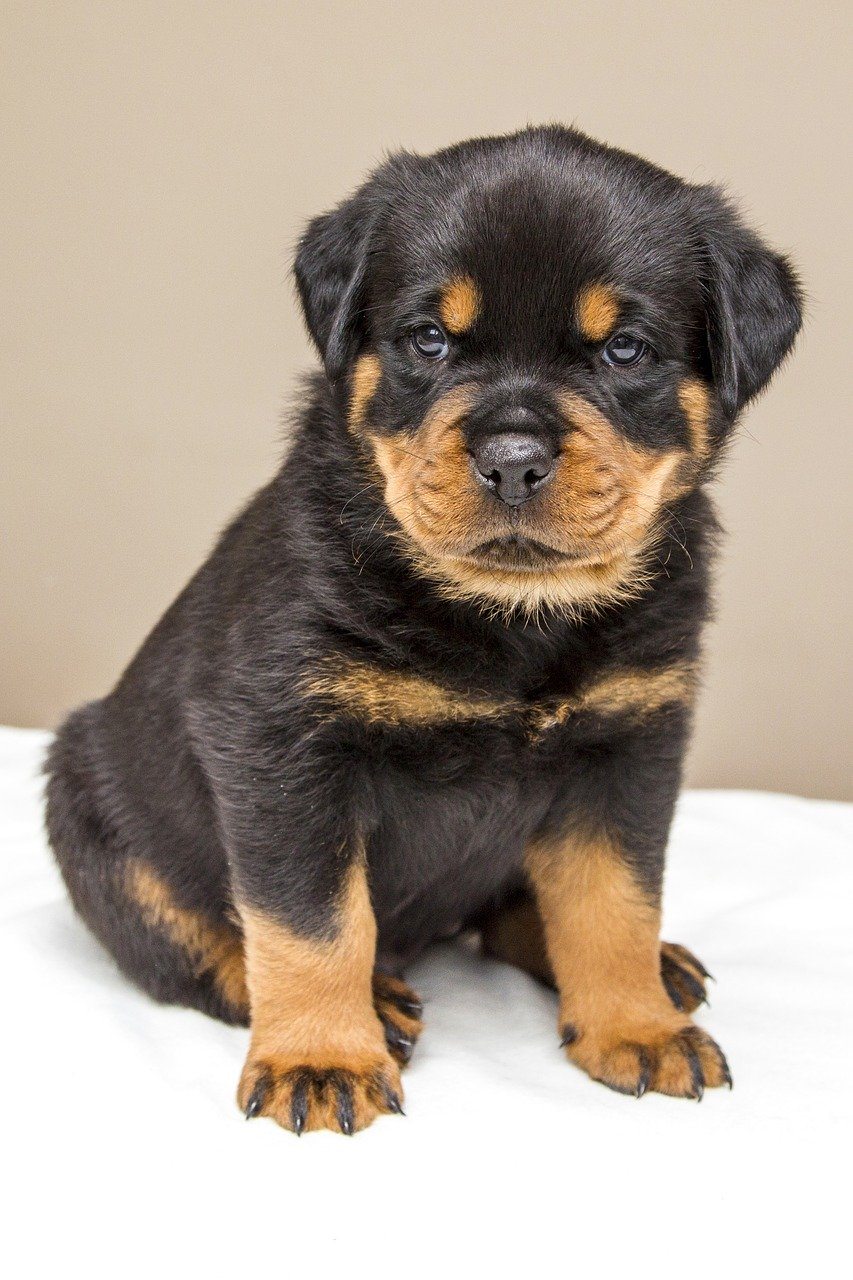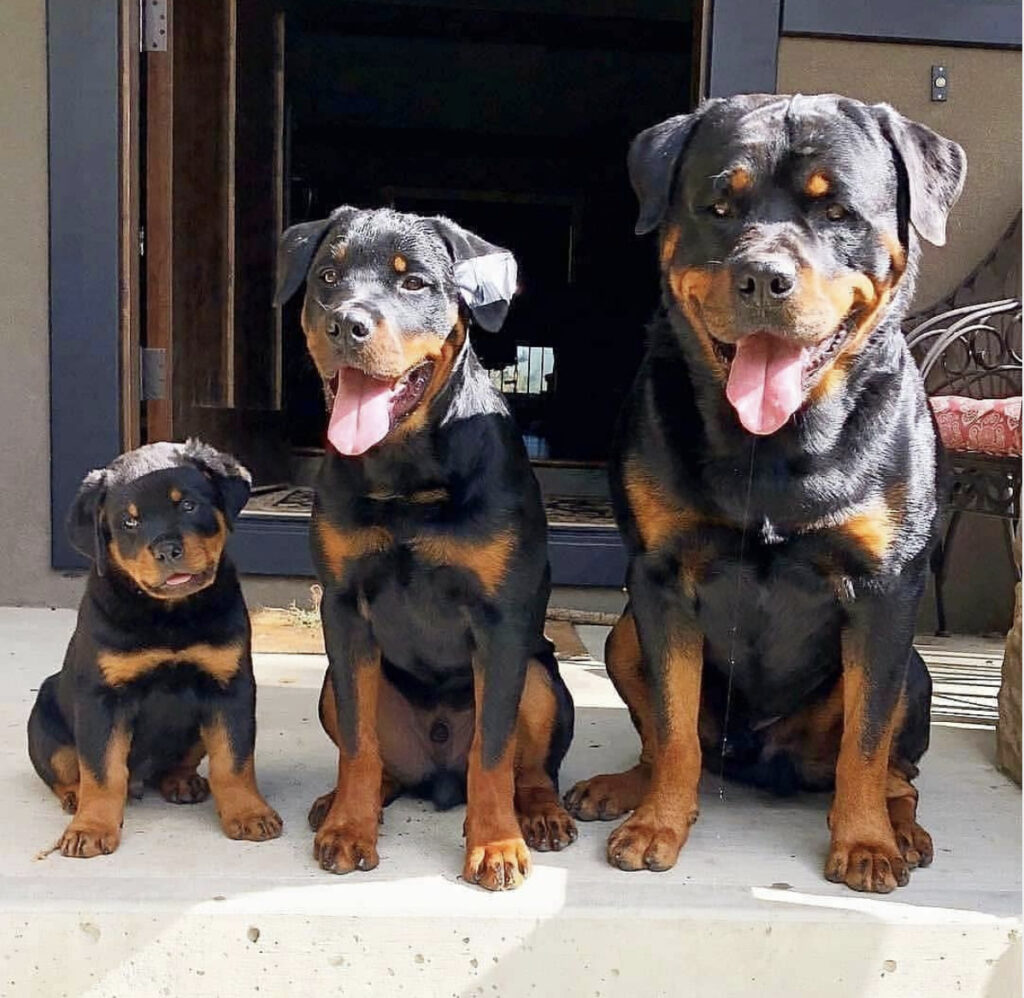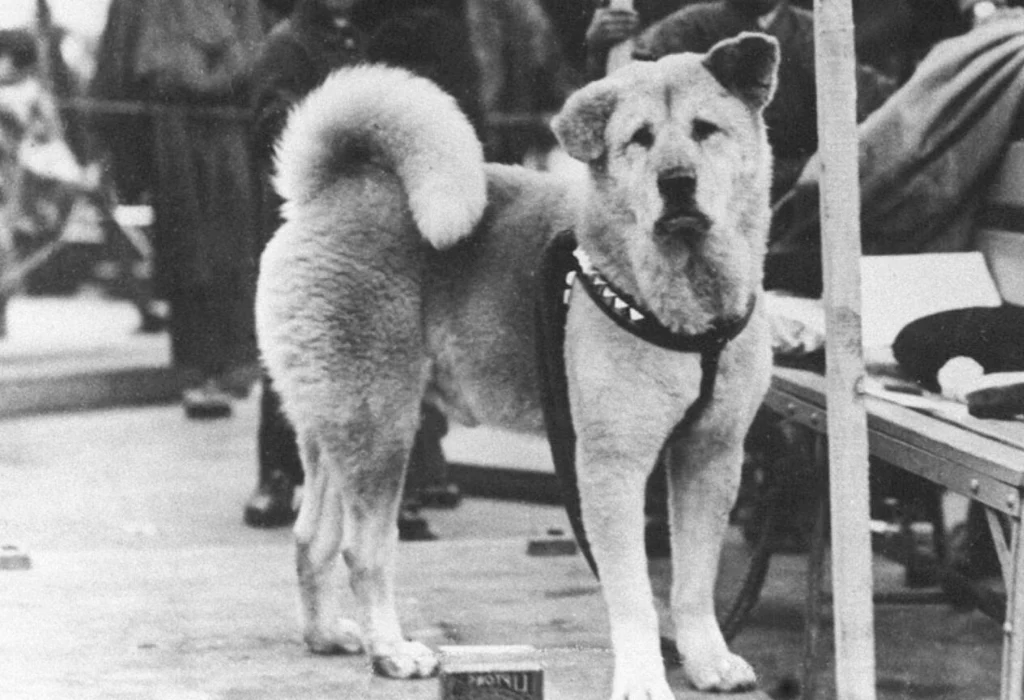Rottweiler Dog Breed Information, Characteristics & Cost in India
Known for their imposing presence and unwavering loyalty, Rottweilers have captured the hearts of dog enthusiasts worldwide, and India is no exception. With their roots tracing back to ancient Roman times, these majestic canines have evolved into versatile companions and reliable protectors. In this article, we delve into the world of Rottweiler dog breed, exploring their characteristics, temperament, and the responsibilities that come with owning one in India
IAs the popularity of Rottweilers continues to grow across the country, it is essential for prospective owners and admirers alike to be well-informed about this remarkable breed. While Rottweilers are renowned for their protective nature, there is much more to them than meets the eye. Understanding their history, unique attributes, and care requirements is crucial in providing these magnificent dogs with a loving and nurturing environment.
In the following sections, we will take an in-depth look at the Rottweiler breed, uncovering their physical traits, distinctive personality, and exercise needs. Additionally, we will explore the financial aspect of owning a Rottweiler in India, shedding light on the costs involved in their upkeep and well-being.
Whether you are considering bringing a Rottweiler into your home or simply want to broaden your knowledge about this captivating breed, this article aims to serve as a comprehensive guide. Let us embark on a journey to discover the fascinating world of Rottweilers and gain insights into what makes them cherished companions in Indian households.
History and origin
The history of the Rottweiler can be traced back to the ancient Roman Empire, where they were originally bred as working dogs. The breed's roots can be found in the town of Rottweil, located in the region of Württemberg, Germany. Rottweil was an important trade hub during the Roman era, and the Romans brought their cattle herding dogs with them to the region. These dogs were then crossed with local breeds, resulting in a versatile canine with exceptional herding and guarding capabilities.
Alldogs.in recommends that you always first consider adopting a puppy from a shelter or someone in your network who is struggling to kepe the dog before considering adopting one from a breeder.
During the Middle Ages, the Rottweiler breed continued to thrive in the Rottweil area, where they were primarily used for driving cattle to market. They earned the nickname "Rottweiler Metzgerhund," which translates to "Rottweil Butcher's Dog," as they were often employed by local butchers to pull carts laden with meat to market.
As industrialization began to replace traditional herding practices in the 19th century, the Rottweiler's role as a cattle herder diminished. However, their intelligence, strength, and protective instincts did not go unnoticed. The breed found new purpose as police and military dogs, and they were also utilized as guardians of homes and properties.
The first official Rottweiler breed club, known as the "Deutscher Rottweiler-Klub" (German Rottweiler Club), was formed in Germany in 1907. The club established the breed standard and worked to preserve the Rottweiler's unique characteristics and temperament.
The Rottweiler's journey to international recognition began in the early 20th century when they were introduced to other countries, including the United States. The American Kennel Club (AKC) officially recognized the Rottweiler breed in 1931.
Rottweiler popularity in India
In recent years, the Rottweiler has gained immense popularity in India as a formidable guard dog and a loving family companion. Their striking appearance and unwavering loyalty have made them a sought-after breed among dog enthusiasts and pet owners.
Due to their strong protective instincts and trainable nature, Rottweilers are often employed as working dogs in various security and law enforcement roles across India. Additionally, their adaptability to diverse climates and environments has contributed to their widespread presence in urban and rural settings alike.
While the breed's heritage as a herding and working dog still influences their behavior, responsible ownership and proper training are essential to ensure that Rottweilers remain well-adjusted and balanced companions in domestic settings.
As we explore the characteristics and temperament of the Rottweiler in the following sections, it is crucial to remember that their history as loyal protectors and skilled workers has shaped them into the remarkable breed we know today. Understanding their origins is key to appreciating their unique qualities and providing them with the care they deserve in the modern world.
Characteristics and Appearance
The Rottweiler's robust and muscular build commands attention and respect. With a powerful presence and an intelligent gaze, this breed stands as an embodiment of strength and loyalty. Understanding the distinct characteristics and appearance of the Rottweiler is essential to appreciating their unique qualities fully.
According to the (AKC) American Kennel Club breed standard for Rottweilers, Rottweilers come in only three official colors, with base color always being black with markings ranging from rust to mahogany.
Rottweiler colors

Black and Mahogany Rottweiler
These are the darkrest colored Rottweilers.

Black and Rust Rottweiler
Black and Rust Rottweilers are common and very popular.

Black and tan Rottweilers
Black and tan Rottweilers are rare among litters to find
Rottweiler Physical Attributes
- Size: Rottweilers are large dogs, with males typically standing between 24 to 27 inches (61 to 69 cm) at the shoulder, and females slightly smaller, ranging from 22 to 25 inches (56 to 63 cm).
- Weight: Adult Rottweilers usually weigh between 95 to 135 pounds (43 to 61 kg) for males and 80 to 100 pounds (36 to 45 kg) for females.
- Build: The Rottweiler's body is well-balanced and muscular. They have a broad chest and a deep, powerful chest, giving them the endurance and strength required for their historical work as herders and guardians.
- Coat: The Rottweiler's coat is short, dense, and straight, providing them with protection and insulation. Their coat color is predominantly black, with clearly defined rich tan markings on their cheeks, muzzle, chest, legs, and eyebrows.
- Tail: Traditionally, the Rottweiler's tail was docked for practical and historical reasons. However, tail docking practices have become less common in many countries due to changes in animal welfare laws. Thus, Rottweilers with full, natural tails are increasingly common.
Rottweiler Distinctive Features
- Head: The Rottweiler's head is broad and medium-sized, adorned with a well-defined stop (a crease or indentation) between their forehead and muzzle.
- Eyes: Their almond-shaped eyes are dark and expressive, reflecting their intelligence and loyalty.
- Ears: Rottweilers have triangular-shaped ears that are set high on their heads and typically fold forward.
- Muzzle: The muzzle is powerful and moderately elongated, allowing for a strong bite force.
- Chest: The chest is broad and deep, giving Rottweilers the ability to work effectively.
Rottweiler Temperament
Beneath their formidable appearance, Rottweilers possess a calm and confident demeanor. They are known for their loyalty and devotion to their family, making them excellent guard dogs. Early socialization and proper training are essential to ensure their protective instincts are well-balanced and directed appropriately.
Rottweilers are intelligent and eager to please, making them highly trainable. However, they require consistent and firm guidance from their owners to be well-mannered companions. Positive reinforcement methods are generally more effective with this sensitive and responsive breed.
The Rottweiler's striking physical attributes and steadfast temperament combine to create a remarkable breed that excels in various roles, from working alongside law enforcement to providing unwavering companionship in family homes. Understanding their characteristics and appearance is the first step towards appreciating and embracing the Rottweiler's unique qualities as both protectors and beloved members of the family.
Rottweiler Exercise and Training Needs
As an energetic and intelligent breed, the Rottweiler thrives on physical activity and mental stimulation. Providing adequate exercise and training for these magnificent dogs is crucial to maintaining their physical health and emotional well-being. Failing to meet their exercise and training needs can lead to behavioral issues and a dissatisfied Rottweiler.
Exercise Requirements
- Daily Exercise: Rottweilers require regular and substantial exercise to keep them mentally and physically engaged. Aim for at least 60 to 90 minutes of exercise each day. This can include brisk walks, jogging, playtime, and interactive activities.
- Outdoor Space: Ideally, Rottweilers should have access to a secure and spacious outdoor area where they can freely roam and play. A fenced yard is highly recommended to prevent them from wandering off and to ensure their safety.
- Mental Stimulation: In addition to physical exercise, mental stimulation is essential for Rottweilers. Engage them in interactive games, obedience training, puzzle toys, and other activities that challenge their minds.
- Socialization: Early and positive socialization is crucial for Rottweilers. Expose them to various people, other dogs, and different environments to help them become well-adjusted and confident pets.
- Positive Reinforcement: Rottweilers respond best to positive reinforcement training methods. Use praise, treats, and rewards to reinforce desired behaviors. Avoid harsh punishment or aggressive training techniques, as they can lead to fear or aggression in the dog.
- Consistency: Consistency is key when training a Rottweiler. Set clear rules and boundaries and ensure that all family members enforce them consistently to avoid confusion.
- Early Training: Start training and socialization as early as possible. Rottweiler puppies are highly impressionable, and early training helps build a strong foundation for their behavior as adults.
- Obedience Training: Basic obedience training is essential for a well-behaved Rottweiler. Teach them commands like sit, stay, come, and leash walking. Advanced training, such as off-leash recall and more complex commands, can also be beneficial.
- Leadership: Rottweilers have a strong pack mentality and look for a leader within the family. Be firm, fair, and consistent in your training to establish yourself as the pack leader, which will help foster a well-balanced and obedient dog.
Meeting the exercise and training needs of a Rottweiler is a rewarding journey that strengthens the bond between the dog and its owner. Regular exercise and mental stimulation keep them happy and healthy, while positive reinforcement training methods ensure that they grow into well-mannered and loyal companions. With proper exercise, training, and socialization, a Rottweiler can become a wonderful addition to any family, bringing joy and protection to their human pack.
Good with children
Rottweilers are often depicted as formidable guard dogs, but behind their imposing appearance lies a breed that can form strong and loving bonds with children. When raised and socialized properly, Rottweilers can be gentle, patient, and protective playmates for kids, making them an excellent choice for families seeking a loyal and affectionate companion.
Natural Protective Instincts
Rottweilers are renowned for their protective nature, which extends to their human family members, especially children. This breed's natural instincts make them naturally vigilant and watchful, always keeping a close eye on their loved ones. Many Rottweilers take on the role of guardians, creating a sense of security and reassurance for parents and children alik
Good with Other Dogs
Labradors are generally friendly and social dogs. They tend to get along well with other dogs, especially if they are adequately socialized from a young age. Socialization helps them develop good dog-to-dog communication skills and reduces the likelihood of aggression towards other dogs in adulthood. However, as with any breed, individual temperament can vary, and some Labradors may be more dominant or reserved around other dogs. Proper introductions and monitoring during initial interactions with new dogs are crucial to ensure a harmonious relationship.
Patient and Gentle
Labradors can coexist peacefully with other animals if introduced to them early and in a positive manner. Their friendly and curious nature can make them compatible with other pets, such as cats, rabbits, or small rodents. However, it's important to supervise their interactions until you are confident that they are comfortable around each other. Some Labradors may have a stronger prey drive than others, and it's essential to consider each dog's individual personality and behavior when introducing them to other animals.
Socialization and Training
Early socialization is key to fostering a positive relationship between Rottweilers and children. Exposing the dog to different environments, people, and experiences from an early age helps them develop into well-adjusted and confident pets. Additionally, positive reinforcement training methods are vital for teaching Rottweilers appropriate behaviors around children and reinforcing their gentle and friendly demeanor.
Adult Supervision
While Rottweilers can be excellent with children, it is essential to supervise all interactions between the dog and young children. No matter how gentle a dog may be, both the dog and the child should be protected from any unintentional rough play or mishaps that can occur during playtime. Teaching children how to interact respectfully with the dog and providing them with boundaries can help prevent any potential accidents.
Rottweilers can form a strong and loving bond with children, providing them with a loyal and protective companion throughout their childhood. When raised in a loving and nurturing environment, Rottweilers can be gentle, patient, and affectionate playmates, enriching the lives of the entire family. As with any dog breed, early socialization, proper training, and adult supervision during interactions are essential to ensure a harmonious relationship between Rottweilers and children. With responsible ownership and care, Rottweilers can be an invaluable and cherished addition to any family, bringing joy, protection, and unconditional love to all members, big and small.

Rottweiler Grooming and Maintenance
Rottweilers boast a short and dense double coat that is relatively easy to maintain. While they are not high-maintenance in terms of grooming, regular care is still necessary to keep them looking their best and ensure their overall health and well-being.
Rottweiler Coat Care
BrushingBrush your Rottweiler's coat at least once or twice a week to remove loose hair and distribute natural oils, which help keep their skin and coat healthy.
Seasonal SheddingRottweilers shed moderately throughout the year, with heavier shedding occurring during seasonal changes, typically in the spring and fall. During these periods, more frequent brushing may be necessary to manage the shedding
BathingRottweilers are generally clean dogs and do not require frequent baths. Bathe them only when necessary, such as when they get dirty or develop a strong odor.
Ear CleaningRegularly check and clean your Rottweiler's ears to prevent the buildup of wax and debris, which can lead to ear infections. Use a gentle ear cleaning solution and a cotton ball, being careful not to insert anything deep into the ear canal.
Dental CareDental hygiene is essential for Rottweilers, as with all breeds. Brush their teeth regularly to prevent tartar buildup and maintain good oral health.
Nail CareRegular nail trimming is crucial for Rottweilers to prevent overgrowth, which can cause discomfort and even lead to joint issues. Trim their nails every few weeks or as needed, being cautious not to cut into the quick (the sensitive part of the nail that contains blood vessels).
Rottweiler Health and Veterinary Care
VaccinationsKeep your Rottweiler up-to-date with their vaccinations as recommended by your veterinarian to protect them from various diseases and infections.
Regular Check-upsSchedule regular veterinary check-ups for your Rottweiler to monitor their overall health and detect any potential health issues early on.
Parasite PreventionAdminister preventive medications for fleas, ticks, and other parasites as recommended by your veterinarian.
Proper DietProvide your Rottweiler with a balanced and nutritious diet that meets their specific dietary needs. Consult your veterinarian for guidance on the best diet for your dog's age, size, and activity level.
Exercise and Mental Stimulation:In addition to grooming, Rottweilers require regular exercise and mental stimulation to stay happy and healthy. Ensure they receive daily physical activity and engage in interactive games and training sessions to keep their minds sharp.
Maintaining a healthy and well-groomed Rottweiler is a rewarding experience that enhances the bond between you and your beloved pet. Regular grooming, proper dental care, and veterinary check-ups are essential for their overall well-being. By providing them with the care they need, you can ensure that your Rottweiler remains a healthy, happy, and confident companion throughout their life.
Rottweiler adoption and cost of ownership
Owning a Rottweiler can be a fulfilling and rewarding experience, but it also comes with various costs that potential owners should consider before bringing this majestic breed into their homes. From initial expenses to ongoing maintenance, being financially prepared is essential for providing your Rottweiler with the best care possible.
Adoption cost
The cost of adopting a Rottweiler puppy can vary depending on several factors, including the dog's lineage, quality, and breeder reputation. Reputable breeders who prioritize health and temperament will often charge more for their puppies. On average, the cost of a Rottweiler puppy from a responsible breeder in India can range from ₹25,000 to ₹60,000 or more.
Alternatively, adoption from a rescue center or animal shelter is a more affordable option, which is what Alldogs.in always recommends. The adoption fee typically ranges from ₹10,000 to ₹25,000. Adopting a dog not only saves a life but may also include initial vaccinations and neutering or spaying, which can offset some costs.
Rottweiler Vet Care
Routine veterinary care is a crucial aspect of responsible pet ownership. Initial vaccinations, deworming, and health check-ups will incur some expenses. Additionally, yearly vaccinations, flea and tick preventives, and regular health check-ups are ongoing costs that need to be factored in. It is essential to budget for these routine veterinary expenses, which can amount to ₹5,000 to ₹10,000 or more annually.
Rottweiler Food and Nutrition Costs
Rottweilers are large dogs and have hearty appetites. Providing them with a balanced and nutritious diet is essential for their health and well-being. High-quality dog food suitable for large breeds can cost around ₹3,000 to ₹6,000 per month, depending on the brand and dietary requirements of your dog.
Rottweiler Grooming and Supplies Costs
As mentioned in the previous section, Rottweilers have relatively low grooming needs. However, grooming supplies such as brushes, nail clippers, and grooming products will add to the overall cost. Budget for grooming supplies at around ₹500 to ₹1,000 initially and possibly more over time for replacements or upgrades.
Rottweiler Training and Socialization Costs
Proper training and socialization are essential for a well-behaved and well-adjusted Rottweiler. Enrolling your dog in obedience classes or hiring a professional trainer can add to the expenses. Training costs can range from ₹5,000 to ₹15,000 or more, depending on the training program and the dog's individual needs.
Rottweiler Toys and Accessories Costs
Providing your Rottweiler with toys, a comfortable bed, leash, collar, and other accessories will also contribute to the overall cost. Budget for these items at approximately ₹2,000 to ₹5,000 initially.
Rottweiler Pet Insurance Costs
Consider investing in pet insurance to help offset unexpected medical expenses. Pet insurance premiums can range from ₹3,000 to ₹10,000 or more annually, depending on the coverage and the dog's age and health condition.
Owning a Rottweiler in India comes with both initial and ongoing costs, but the love, loyalty, and companionship they bring are immeasurable. Before bringing a Rottweiler into your family, it is essential to budget for their needs and commit to providing them with a safe, loving, and healthy environment. Responsible ownership and proper care are the keys to ensuring a long and fulfilling life with your cherished Rottweiler companion.
Rottweiler - Finding a Reputable Breeder or Adoption Center
When considering adding a Rottweiler to your family, finding a reputable breeder or adoption center is of utmost importance. Responsible breeders and adoption centers prioritize the health, well-being, and temperament of their dogs, ensuring that you bring home a happy and healthy companion. Here are some essential steps to guide you in finding a reputable source for your Rottweiler:
Research and Referrals
Start by conducting thorough research. Look for breeders or adoption centers with a good reputation and positive reviews from previous customers. Seek recommendations from friends, family, or local dog clubs who may have experience with Rottweilers or know reputable sources.
Visit in Person
If possible, visit the breeder or adoption center in person. This allows you to see the living conditions of the dogs and assess the overall cleanliness and care provided. Pay attention to the dogs' behavior and interactions with people, which can give you insights into their socialization.
Health Screening
Reputable breeders prioritize the health of their dogs and conduct necessary health screenings. Ask the breeder about health clearances for genetic conditions commonly found in Rottweilers, such as hip dysplasia and heart issues. Adoption centers should also provide health records for their dogs.
Temperament Assessment
A responsible breeder or adoption center will conduct temperament assessments on their dogs. This helps match the right puppy or dog to your family's lifestyle and needs.
Meet the Parents
If possible, meet the puppy's parents or the adult dog's parents in the case of adoption. Observing the parents' temperament and behavior can give you an idea of what to expect from their offspring.
Ask Questions
Don't hesitate to ask the breeder or adoption center staff any questions you may have about the dogs, their lineage, health, and upbringing. Reputable sources will be open and transparent in answering your inquiries.
Contracts and Guarantees
A responsible breeder or adoption center will provide you with a written contract that outlines the terms of the sale or adoption. It should include health guarantees and a return policy in case the dog develops any health issues or doesn't fit well into your family.
No Puppy Mills
Avoid purchasing from puppy mills or disreputable breeders. Puppy mills prioritize profit over the health and welfare of the dogs. Puppies from these sources are often raised in poor conditions and can have significant health and behavioral issues.
Adoption Centers and Rescues
Consider adopting a Rottweiler from a rescue center or animal shelter. Many wonderful Rottweilers are in need of loving homes through adoption. Adoption provides a second chance for a dog and can be a rewarding experience for both the dog and the owner.
Finding a reputable breeder or adoption center is essential for bringing a healthy, well-socialized, and happy Rottweiler into your family. Take your time to research and visit potential sources, ensuring that they prioritize the well-being of their dogs. By choosing a responsible breeder or adopting from a reputable center, you are making a commitment to provide a loving and caring home for your Rottweiler companion.
Rottweiler Fun Facts
Beyond their imposing appearance and protective nature, Rottweilers have some intriguing and endearing characteristics that make them a fascinating breed. Here are some fun facts about these magnificent dogs:
- Ancient Heritage: Rottweilers are one of the oldest herding breeds with a history that dates back to the Roman Empire. They are believed to be descendants of ancient Roman drover dogs, which were used to drive cattle to market.
- Butcher's Dog: The breed earned the nickname "Rottweiler Metzgerhund," which translates to "Rottweil Butcher's Dog," due to their historical role in pulling carts laden with meat to market. Their strong work ethic and endurance made them indispensable for the job.
- Rottweil, Germany: The name "Rottweiler" comes from the town of Rottweil, located in southern Germany. This is where the breed's history is deeply rooted, and it was once a hub for cattle trading.
- Eager Learners: While Rottweilers are renowned for their herding and guarding abilities, they are versatile working dogs with a range of talents. They have excelled in roles such as police work, search and rescue, therapy dog, and even in competitive dog sports like obedience and agility.
- Versatile Working Dogs: Apart from being great family pets, Labradors are versatile working dogs. They are employed as service dogs, therapy dogs, search and rescue dogs, guide dogs for the visually impaired, and even as detection dogs for drugs and explosives.
- Heroic Hachi: In Japan, a Rottweiler named Hachiko gained fame for his loyalty and devotion to his owner. After his owner's death, Hachiko continued to wait at the train station for him every day for nearly ten years, touching the hearts of many and becoming a symbol of loyalty worldwide.
- Hollywood Stars: Rottweilers have made appearances in various movies and TV shows, often portraying their protective and loyal nature. One of the most famous Rottweilers in Hollywood is "Hooch" from the movie "Turner & Hooch."
- Cart-Pulling Heritagel: Rottweilers have retained their cart-pulling instincts, and some modern-day enthusiasts engage in cart-pulling activities with their dogs, celebrating the breed's historical purpose.
- Amazing Memory: Rottweilers are known for their impressive memory and ability to learn from past experiences. This makes them excellent learners during training sessions.
- Outstanding Intelligence: The breed ranks quite high in intelligence among dog breeds. Their intelligence, combined with their loyalty and work ethic, makes them adept at various tasks and roles.
- Great with Kids: With proper socialization and training, Rottweilers can be fantastic family dogs. They are often gentle, patient, and protective of children, forming strong bonds with their young human companions.

Rottweilers are not only magnificent guard dogs and working dogs but also fascinating companions with a rich history and unique traits. Learning about these fun facts adds another layer of appreciation for the breed's enduring legacy and their special place in the hearts of dog enthusiasts around the world.
Frequently Asked Questions about Rottweiler
Are Rottweilers aggressive?
No, Rottweilers are not inherently aggressive, but they are naturally protective. Proper socialization, training, and responsible ownership play a crucial role in shaping their temperament and behavior.
How big do Rottweilers get?
Rottweilers are large dogs, with males typically standing between 24 to 27 inches (61 to 69 cm) at the shoulder and weighing between 95 to 135 pounds (43 to 61 kg). Females are slightly smaller, ranging from 22 to 25 inches (56 to 63 cm) and weighing between 80 to 100 pounds (36 to 45 kg).
Are Labrador Retrievers good with children?
Yes, Labrador Retrievers are known for their gentle and friendly nature, making them excellent companions for children. They are patient and tolerant, and their playful demeanor makes them great playmates for kids. However, as with any dog, supervision and teaching kids how to interact respectfully with dogs are crucial.
Do Rottweilers shed a lot?
Rottweilers do shed moderately throughout the year, with heavier shedding occurring during seasonal changes. Regular brushing helps manage their shedding and keeps their coat healthy.
Are Rottweilers good family dogs?
Labrador Retrievers have a short, dense coat that is relatively easy to maintain. Regular brushing to remove loose hair and occasional baths are usually sufficient to keep their coat clean and healthy. They shed seasonally, so more frequent grooming during these periods may be necessary.
How much exercise do Rottweilers need?
Rottweilers are active dogs that require regular exercise to stay healthy and mentally stimulated. Aim for at least 60 to 90 minutes of exercise daily, which can include walks, playtime, and interactive activities.
Do Rottweilers get along with other pets?
Rottweilers can get along well with other pets, especially when introduced and socialized properly. However, their strong prey drive and protective instincts may require careful supervision during interactions with smaller animals.
o Rottweilers drool a lot?
Rottweilers are not excessive droolers compared to some other breeds. However, some individual Rottweilers may drool more than others, especially after eating or drinking.
Are Rottweilers good guard dogs?
Yes, Rottweilers are excellent guard dogs due to their natural protective instincts and loyalty to their family. Their intimidating presence and deep bark often deter potential intruders.
How long do Rottweilers live?
On average, Rottweilers have a lifespan of around 9 to 12 years. Proper diet, regular exercise, and routine veterinary care can contribute to their overall health and longevity.
Can Labrador Retrievers be trained for specific purposes, such as therapy or service work?
Yes, Labrador Retrievers are highly trainable and versatile dogs, making them well-suited for therapy and service work. Their gentle and friendly nature allows them to excel in roles as therapy dogs, providing comfort and emotional support to individuals in various settings. They can also be trained for service work to assist people with disabilities.
Are Rottweilers good for first-time dog owners?
Rottweilers can be suitable for first-time dog owners, but it depends on several factors, including the individual's experience, commitment, and lifestyle. While Rottweilers are intelligent, loyal, and affectionate, they are also a powerful and strong-willed breed that requires consistent training and socialization from an early age.
Training and Socialization:Rottweilers benefit from early and consistent training, and socialization is crucial to help them become well-adjusted and well-behaved pets. First-time owners should be willing to invest time and effort into training classes and exposure to various people, places, and situations.
Exercise Requirements:Rottweilers are active dogs with considerable exercise needs. First-time owners should be prepared to provide daily physical activity and mental stimulation to keep their Rottweiler happy and healthy.
Size and Strength:Rottweilers are large and powerful dogs. First-time owners should feel confident in their ability to handle and control a strong dog, especially during walks and interactions with other animals.
Consistency and Leadership:Rottweilers respond well to consistent leadership and clear boundaries. First-time owners should be firm but fair in their approach to training and avoid any harsh or punitive methods.
Time and Commitment:Rottweilers are a devoted and loyal breed that thrives on companionship. First-time owners should be prepared to spend quality time with their Rottweiler, as these dogs can become unhappy and exhibit undesirable behaviors if left alone for extended periods.
Social Support and Resources:First-time Rottweiler owners may benefit from having a support network of experienced dog owners or access to reputable dog trainers or behavioral experts to help with any challenges that may arise.
Ultimately, a first-time dog owner who is willing to put in the time, effort, and dedication to train, exercise, and care for a Rottweiler can have a rewarding and loving relationship with this remarkable breed. However, if someone feels unsure or overwhelmed by the responsibilities that come with owning a Rottweiler, it may be best to consider a breed that better matches their experience and lifestyle. Responsible breeders and adoption centers can help guide potential owners in making the right choice for their situation.
Are Rottweilers easy to train?
Yes, Rottweilers are generally easy to train due to their intelligence and eagerness to please. They respond well to positive reinforcement training methods and enjoy learning new commands and tricks. Consistency, patience, and rewards are essential for successful training with Rottweilers.
Conclusion
In conclusion, In the world of canine companions, the Rottweiler stands tall as a magnificent breed with a rich history and a devoted heart. From their origins as Roman cattle herders to their modern roles as loyal protectors and cherished family members, Rottweilers have left an indelible mark on the lives of countless dog enthusiasts.
Their imposing appearance, combined with their intelligence, loyalty, and protective instincts, has made them sought-after working dogs, guardians, and loving companions worldwide. In India, the popularity of Rottweilers continues to grow, as families welcome these remarkable dogs into their homes and hearts.
Aspiring Rottweiler owners should recognize the commitment and responsibility that comes with bringing home one of these majestic dogs. Proper socialization, training, and regular exercise are paramount in fostering a well-balanced and well-mannered Rottweiler.
For those seeking a new addition to their family, adoption from a reputable rescue center or responsible breeder can provide a loving forever home to a Rottweiler in need.
Above all, responsible ownership and unconditional love form the foundation of a lifelong bond with a Rottweiler. They thrive in environments where they are valued as devoted family members, provided with the care they deserve, and given opportunities to shine in their various roles.
Whether they are guarding the homestead, participating in dog sports, or simply curling up by your side, Rottweilers have a unique ability to touch our lives with their loyalty, strength, and affection. The journey of sharing life with a Rottweiler is one that promises joy, protection, and unbreakable camaraderie.
As we embark on this journey with our loyal companions, let us remember the ancient legacy of the Rottweiler, honor their devoted spirit, and continue to embrace them as beloved members of our families, enriching our lives with their steadfast companionship.



